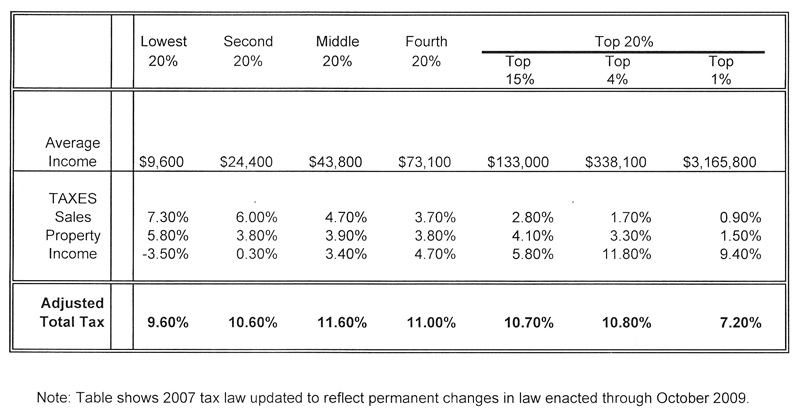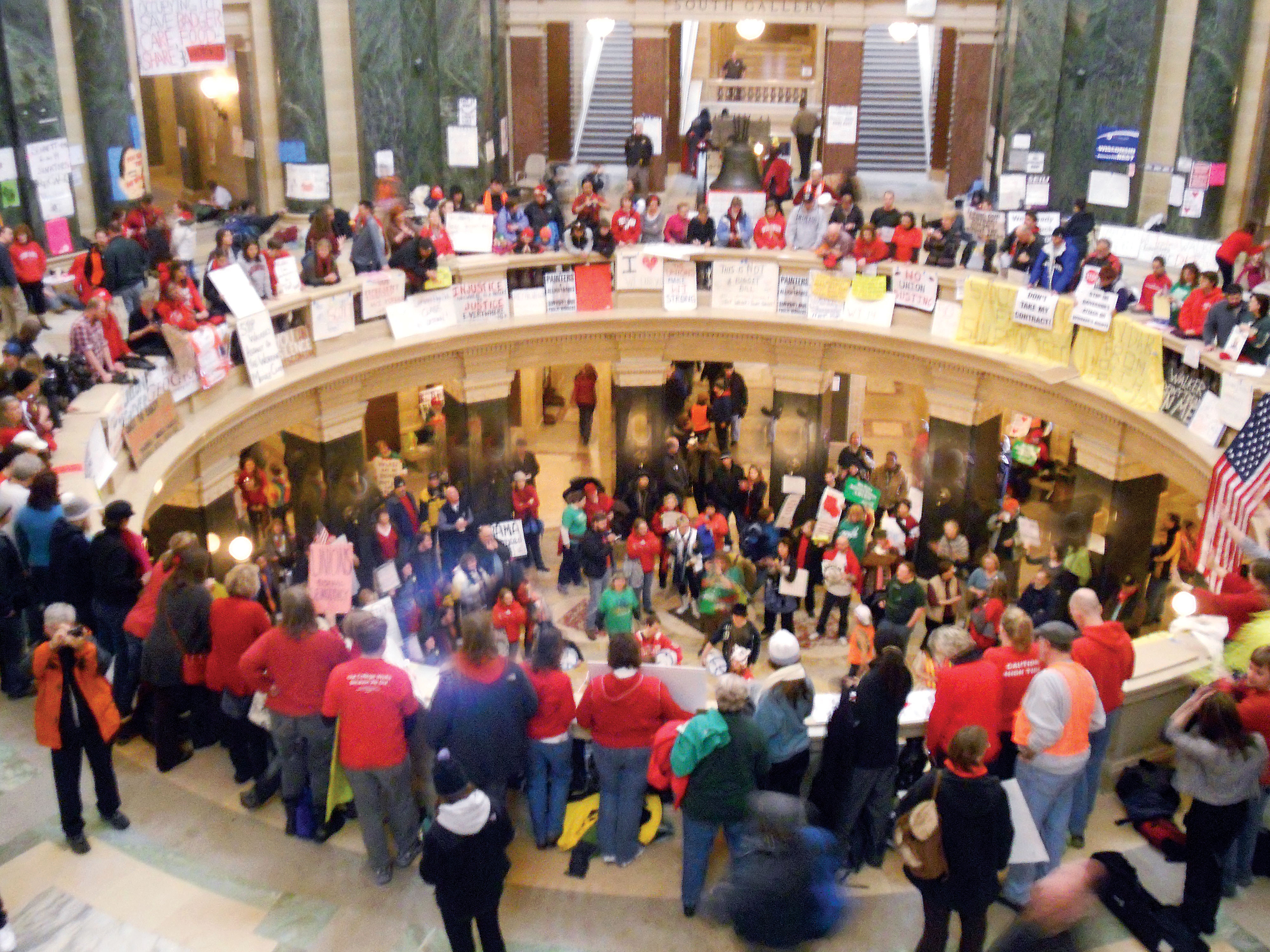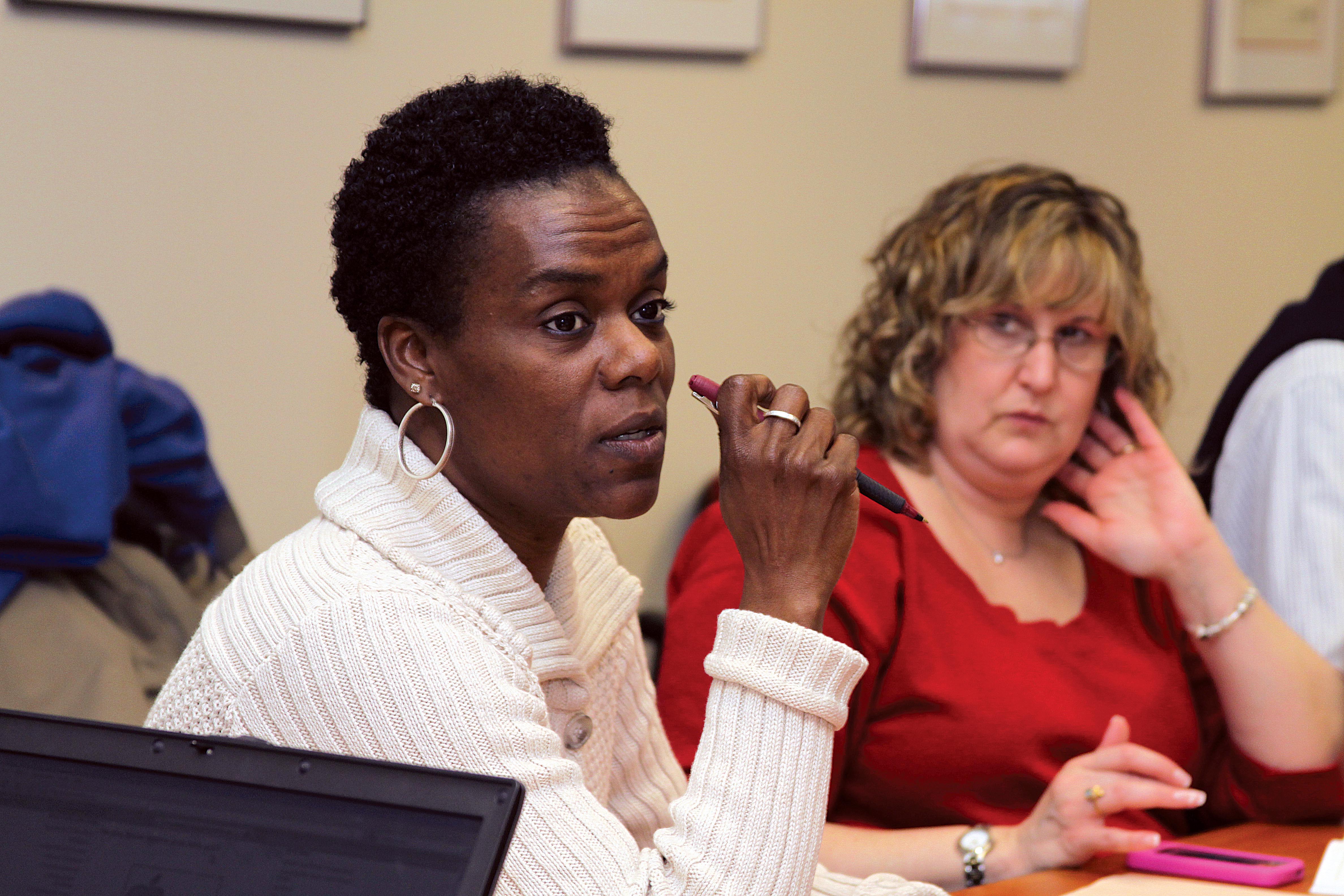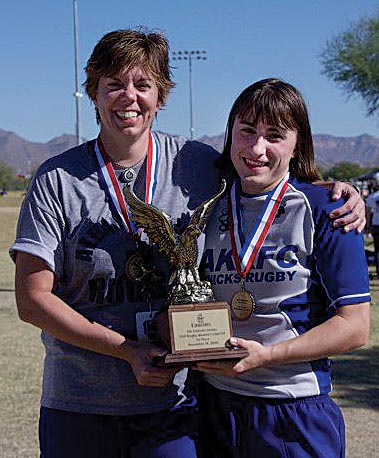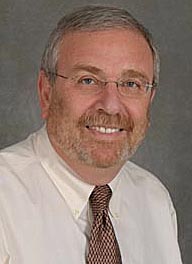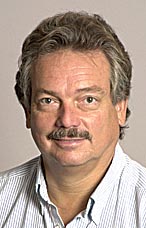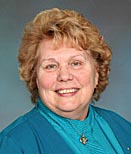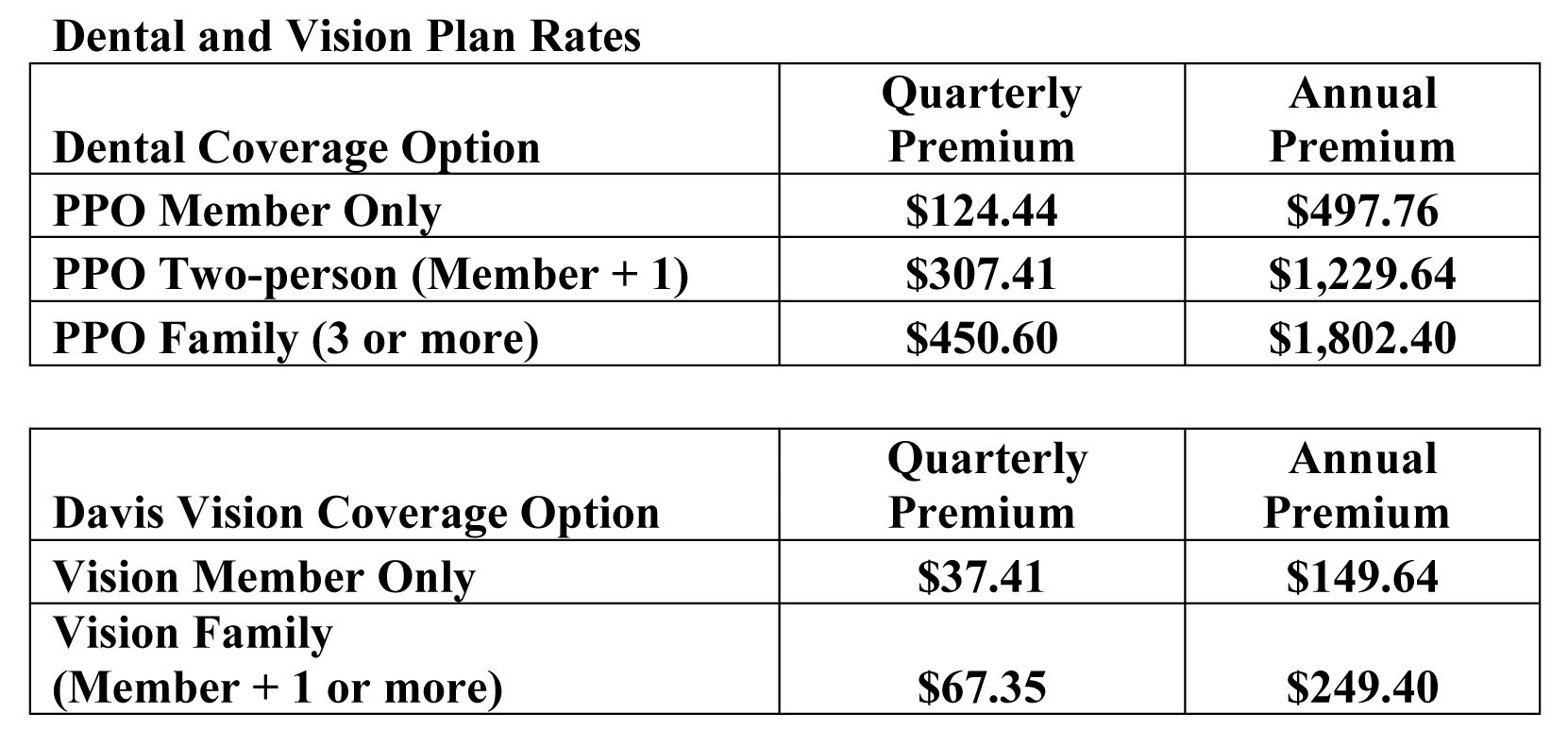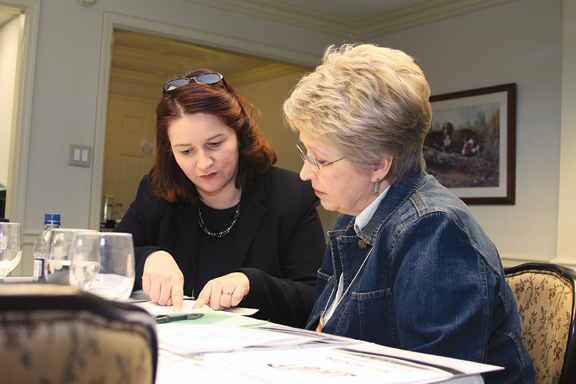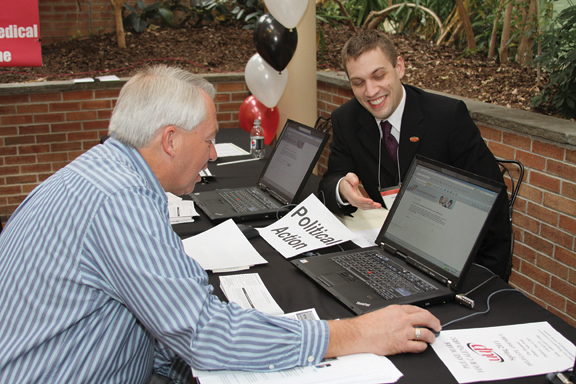|
In the current debate on New York state taxes, the elephant in the room is fairness. Are we treating retired property taxpayers fairly? Are school taxes too high on Long Island compared with the rest of the state? Are millionaires and corporations paying their fair share? Are millionaires’ concerns more important than our children’s education? In most cases, the debate centers on egregious examples. For instance, in Buffalo, a millionaire lawyer buys a million dollar condominium but pays no property taxes because of an Empire Zone Tax Credit, a savings worth $260,000 over the 10 years of the credit. At the same time, just blocks away, a middle-class family must pay full taxes on a $60,000 home. The builders of the project supported the tax break, saying, “It was the only way the project made economic sense.” But what does this say about the fairness of the system as a whole and how it should be changed? One dictionary definition of fairness states: free from favoritism, self-interest or preference in judgment. This is the common sense definition that most of us have in our heads when we talk about taxes. Tax theorists have long tried to deal with the many concepts of tax fairness. Is horizontal theory (treating individuals in the same category) or vertical theory (treating individuals in different categories) more important? How do we treat intergenerational tax burdens? Should we look at taxes for an individual in a single year or over a lifetime? What about regional differences? Should we make allowances for high-cost areas? In each case, a good argument for using one category over the other to talk about tax fairness is possible. In each case, one group of New York state residents will be helped and another hurt. One way philosophers get around these problems is to use what they call the “veil of ignorance.” In other words, if you were unaware of your economic status, what type of tax system would you choose? This is the reasoning behind conservative Chicago professors Blum and Kalven in their book, The Uneasy Case for Progressive Taxation. They argue the value of progressive taxes based on “distributive justice.” Put simply, the authors argue that people who make more money, have a greater ability to pay and who benefit the most from government should pay more taxes. For Blum, Kalven and most of their readers in 1952, this was obvious. Today, the rich try to confuse the argument of justice and turn to efficiency as the measure as if more goods for fewer people is a just outcome for society. So, if a progressive tax system at some level is important to having a fair tax system, how does New York stack up? Even with the current millionaire’s tax in place, the Institute on Taxation and Economic Policy calculates the top 1 percent of New York State taxpayers pay 4.4 percent less as an effective tax rate than the middle 20 percent of New Yorkers. In fact, the top 20 percent pay a lower rate on their income than the lowest 20 percent, who make less than $16,000 per year. The table below shows the entire distribution. How many New Yorkers understand that we have a regressive system that taxes the poor more than the rich? Would knowing this change the public debate? UUPers are members of the working class, and the working class deserves to be treated fairly. It is our job to ask these tough questions and to bring the taxation discussion back to the issue of justice. New York State and Local Taxes in 2007 |
Category Archives: benefits
April 2011
- UUP is ‘pulling out all the stops’
- Battle for the ages
- On the air and in the streets
- NYers stand with public employees
- Negotiations: UUP crafting proposals to present to state
- Our givebacks: Hard knocks, helping hands
- White House taps, honors members
- Spotlight on UUPers
- In other words: VP for Professionals John Marino Turn anger into action
- NYSUT Benefit: Legal Service Plan is there when it’s needed
- UUP benefit: Union offers dental, vision plans for part-timers
NYers stand with public employees
|
Unionists across America felt the pain when Wisconsin Gov. Scott Walker signed a March 11 law designed to crush state-employee unions by limiting their power to bargain and collect union dues. But unions, including UUP and NYSUT, are standing strong behind Wisconsin public-sector workers—and they have not given up the fight. Activists there have vowed to use the setback as a rallying cry to unseat Walker and his Republican cohorts in the 2012 election and regain their bargaining rights. The Huffington Post reported that the backlash has already begun; more than 20,000 nonunion workers signed on as members of Working America, an AFL-CIO-affiliated organization for nonunion laborers, in a show of solidarity. Activists are also working on setting up recall elections for eight Republicans who voted for the law. UUP LENDS SUPPORT UUPers have made a dedicated effort to show solidarity with unionists in the Badger State and other states where public employee unions are under fire, such as Ohio, Michigan, Pennsylvania and Idaho. “Organized labor is under attack and we will line up shoulder to shoulder with our sisters and brothers across the country to fight these transparent union-busting attempts,” said UUP President Phil Smith. UUPers wore stickers with slogans like “We Are Wisconsin,” and “We are Ohio” during a march and joint advocacy event with SUNY and CUNY students, and NYSUT and Professional Staff Congress members in Albany March 15. In February, UUP’s Executive Board passed a resolution supporting Wisconsin public employees, stating that “UUP sends a special message of affirmation to our Wisconsin colleagues working in public higher education institutions.” ON THE FRONT LINE Ed Quinn, UUP’s membership development officer, spent three days in February in Madison, where he stood with Wisconsin public-sector employees fighting for their union rights. Quinn, who protested inside the state Capitol at times, said he was inspired by what he saw. “As the cars went past us, they would beep in the rhythm of the chant ‘Tell me what Democracy looks like,’” he wrote in one of a series of e-mails from the scene. “Of course we answered ‘This is what Democracy looks like.’ Even taxi cabs were doing it.” Smith and members from the Oswego and Upstate Medical University chapters took part in a March 3 rally for Wisconsin workers in Syracuse. UUP Vice President for Professionals John Marino spoke at a Feb. 26 rally in Albany to support Wisconsin workers. Secretary Eileen Landy, who took part in a solidarity rally in Washington, D.C., earlier in the month, was there, along with dozens of other UUP members from Albany, New Paltz and other chapters. Vice President for Academics Fred Floss went to two rallies in the Buffalo area Feb. 26. — Michael Lisi |
Negotiations: UUP crafting proposals to present to state
|
The UUP Negotiations Team spent March immersed in the third phase of preparations for negotiations: turning the list of contract priorities identified by the membership into a package of written proposals to be presented to the state. UUP Chief Negotiator Jamie Dangler of Cortland said a formal start date for negotiations has not been set. UUP’s contract expires July 2. “Our Negotiations Team has been working very hard. We’ve been drafting proposal language and assembling data and other information needed for negotiations,” Dangler said. “Over the last few months, the Negotiations Team has had a series of work sessions, as well as scheduled meetings with UUP officers, our labor relations specialists, and others we’re calling on for assistance and expertise.” Preparing the union’s contract proposals comes after months of asking members to comment on their terms and conditions of employment. The first phase, conducted during the fall semester, involved collecting input from members through chapter visits, a negotiations survey, member suggestion forms, chapter and statewide committee reports, and various face-to-face meetings with members across the state. During the second phase, the Team met with the Negotiations Committee to review and assess all of the member input and to identify contract priorities. The Negotiations Committee—which consists of one representative from every chapter, plus one part-time academic and one part-time professional—completed this task in January. “Preparing UUP’s negotiations proposals requires a keen attention to detail in order to make sure the contract priorities identified by the membership can be addressed at the negotiations table,” Dangler said. “The Team must decide which contract articles should be opened for negotiations before writing the proposal language.” Dangler added that the proposal language is “conceptual in nature, but incorporates all contract items UUP wants to discuss with the state.” The Negotiations Committee will reconvene April 29 to review the contract proposals written by the Negotiations Team. According to the UUP Constitution, the Negotiations Committee must approve UUP’s package of proposals before it is presented to state negotiators. As The Voice went to press, there were reports that Gov. Andrew Cuomo named two of his top negotiators—Joseph Bress and Todd Snyder. Bress is no stranger to collective bargaining in New York or to UUP. He was director of the Governor’s Office of Employee Relations under Gov. Mario Cuomo and negotiated the 1991-1995 contract with UUP. Snyder is a senior managing director of Rothschild Inc., and is an advisor at Rothchild companies in restructurings and reorganizations. He advised the George W. Bush and Obama admin-istrations on the restructuring of the auto industry. “UUP’s is a very democratic process,” said UUP President Phil Smith. “We have listened to our members from around the state and heard their concerns and priorities. UUP will do everything in its power to convince the state that our members make SUNY work, and that we are worth the investment.” — Karen L. Mattison |
Our givebacks: Hard knocks, helping hands
|
UUPer leads rugby team to national title Lori Staples’ days of running into a ruck or staring into a scrum have been over for a while, but she hasn’t hung up her rugby cleats quite yet. The System Administration Chapter UUPer wears them on the sideline as coach of the Albany Knickerbocker Sirens women’s Division II rugby team. And she’s some coach; in November 2010, she took her team to USA Rugby’s Division II National Championship in Mesa, Ariz., where they beat a team from Albuquerque—by a score of 34-22—to win the national title. But Staples’ rugby coaching skills aren’t the only reason she’s a winner. She’s used her passion for the sport to give back to the community. MAKING A DIFFERENCE Staples is more than coach of the Sirens, a community team that plays its home games in Albany. She also coaches the Capital District Youth Rugby league’s girls’ all-star team. She traveled with the troupe last year to the New England Rugby Union girls’ championships in Rutland, Vt. The team, made up of high school-aged players, included a number of girls from low-income families. The experience gave them a chance to participate in a team sport and meet new people. More importantly, it got some of the girls thinking about college; college representatives were there scouting for players. While colleges don’t usually offer scholarships for rugby, they often help players by arranging financial aid and other enrollment incentives. League players have gone on to play rugby at Syracuse, Bowdoin College and Norwich University. “I really do think that (playing rugby) helps with the girls’ self-esteem,” said Staples, who also referees games for the league. “Being a teen-age girl is tough sometimes, despite the front they put up.” Tracy Watson, whose 16-year-old daughter, Jenna, played on the girls’ team and now plays for the Sirens, said Staples’ coaching has been a positive influence on the girls. “Lori fosters an atmosphere that allows the girls to flourish as players and as people,” said Watson, who also plays rugby for the Sirens. “She gives young women the tools that can build an entire generation’s sense of self-worth, interpersonal skills, team player mentality, and an increased level of physical fitness.” LEADING THE SIRENS With the Sirens, Staples is director for two of the three women’s rugby teams and helps recruit people to play. The Sirens, open to players of all ages and skill levels, fields A and B squads for its Division I, Division II and Division III teams. “We’re competitive, but we also have a B side for people who are learning the sport and want to be involved,” said Staples. “We’ve got lawyers, landscapers, teachers, people from all different walks of life ranging in age from their early 20s to early 40s.” The Sirens’ November national championship victory was truly a team effort. The Sirens never advanced this far until this year; the team formed in 2000. Staples played for the Sirens for eight years before becoming coach in 2008. “When you see the team playing and you know you’ve done your job in preparing them, that gives a feeling of satisfaction,” Staples said. “I’m the type who likes to focus on team-building. Everyone contributes, everyone has a role to play.” Those roles were expanded in March 2010, when Michael “Jonesy” Jones, a Sirens player on the men’s team, broke his neck during a tournament. Staples and her players organized a benefit golf tournament for Jones, sold wristbands, and took up collections at games and tournaments. They even made hand-painted T-shirts that spelled out “With you Jonesy” to show support for their fallen comrade. Staples may work behind the scenes at her day job, but when she’s on the rugby field, she’s doing what she can as a youth rugby coach to enrich the community. In a sense, coaching is a way for Staples to pay it forward by helping the Sirens and the Capital District Rugby all-stars. It’s a way for her to return the goodwill she’s received from playing rugby, a sport she’s had a love affair with for two decades. “Rugby has given so much to me over the years,” she said. “Some of my lifelong friends have been gained through rugby. “I’ve traveled the country and overseas because my involvement with rugby. For me, it’s a way of giving back to the sport.” — Michael Lisi |
Spotlight on UUPers
|
The Voice is pleased to recognize three members who were recently appointed to distinguished ranks by the SUNY?Board of Trustees. • Mark Aronoff of Stony Brook is a leader in the field of linguistics. In addition to extensive writing on morphology—the study of the internal structure of words—he is one of four linguists studying an emerging Bedouin sign language. He is president of the Linguistic Society of America and editor of its journal, Language. He is also a fellow of the American Association of the Advancement of Science. • Ronald Toseland, director of UAlbany’s Institute of Gerontology, is known internationally for his seminal scholarship in gerontology; An Introduction to Group Work Practice is widely regarded as the most reliable text on the subject. His research has attracted more than $10 million in grants, and he is one of several inaugural fellows inducted into the American Academy of Social Work and Social Welfare. Aronoff and Toseland were granted the rank of distinguished professor, which is conferred on individuals who have achieved national or international prominence and a distinguished reputation within their chosen field. • Distinguished Teaching Professor Mary Jane Giarrusso-Wilkin of Delhi is considered the quintessential mentor. As chair of the nursing department for 13 years, she has been recognized for developing an associate degree nursing program at SUNY?Delhi, instituting “Teddy Bear Clinics” for pre-schoolers, designing an International Service Learning course for students, and as a recipient of the Chancellor’s Award for Excellence in Teaching. The distinguished teaching professorship honors mastery of teaching at the graduate, undergraduate or professional levels. — Karen L. Mattison |
UUP benefit: Union offers dental, vision plans for part-timers
|
The UUP Member Services Trust Fund offers dental and vision plans for part-time SUNY employees represented by UUP who are ineligible for health benefits. All active employees in the Professional Services Negotiating Unit (PSNU) who are not eligible for enrollment in the New York State Health Insurance Program (NYSHIP) are eligible to purchase dental and vision coverage through the UUP Member Services Trust Fund. The quarterly and annual rates are listed in the chart below. It’s very easy to enroll. Just go to www.uupinfo.org, click on Benefits and then select Part-Timer. There you will be able to review all part-time benefit program information, as well as rates for dental and vision coverage. Should you choose to enroll in either program, simply complete the relevant enrollment form and send the corresponding premium payments for the plans and payment schedules (quarterly or annually) you’ve selected. Make your check or money order out to UUP Member Services Trust Fund and send it to: UUP Member Services, PO Box 15143, Albany, NY 12212-5143. Enrollment can be done throughout the year, and eligibility is processed monthly. In addition, all UUPers are eligible for a $6,000 group term life insurance policy. If you have any questions, please call a customer service representative at (800) 887-3863 for further information. |
February/March 2011

- Spread the word: Cuts to SUNY must stop now
- ‘We’re in for the fight of our lives’ UUP rally cry: ‘Think ahead, invest in higher ed’
- Budget cuts force NYSTI shutdown
- New financial education services available from NYSUT Trust
- Political action takes center stage 2011 Winter DA UUP president calls on members to act
- Delegates get down to union business
- Candidate statements due to UUP by Feb. 25
- Elections update—Mailing labels
- Task force investigates pay equity: UUPers urged to fill out survey
- UUP service awards: All nominations due by April 15
- AFT program: Money available for members, dependents
- Sharing secrets of success: Morrisville professor helps ‘grow business’ in Honduras, Kenya
- Spotlight on UUPers
- ‘We will never forget’ — Labor marks centennial of horrific Triangle Shirtwaist fire
- Negotiations: UUP prioritizes members’ suggestions
- In other words: VP for Academics Fred Floss: Success in reach for autistic students
- Jones promoted to NYSUT/UUP director of staff
- Newest legislative intern hard at work at UUP
- Benefits UUP Benefit Trust Fund is just a phone call away
- AFT Advantage offers online discounts
New financial education services available from NYSUT Trust
|
NYSUT Member Benefits is offering some new financial education services. Here are brief recaps of these services. For more information, visit www.memberbenefits.nysut.org or call (800) 626-8101. • 403(b) Field Guide. This booklet covers all aspects of 403(b) plans and includes information pertinent to bargaining unit members not yet contributing to a 403(b) plan, those who are contributing, those nearing retirement, and those already enjoying retirement. To get the guide, print a copy from the Member Benefits website, use the “Contact” option on the site to send an e-mail request, or call for a copy to be sent free of charge. Chapter leaders can request a supply for their membership. • 403(b) Provider-Specific Workshop. Member Benefits contracted with the provider of its endorsed Financial Counseling Program, Stacey Braun Associates Inc., to conduct these workshops upon request from chapter leaders. Designed to cover the 403(b) plans available to bargaining unit members, these workshops review the features of each plan, comparing fees and benefits. Workshops have a registration fee of $20 per participant and a minimum requirement of 30 participants. A chapter could schedule this workshop as a webinar for a fee of $250. Workshops will not address specific questions pertaining to an individual’s 403(b) plan. Members with questions regarding personal 403(b) accounts or other financial planning issues will be directed to speak with their 403(b) adviser or their financial planner. Information on the endorsed Financial Counseling Program will also be available. • Financial Planning Puzzle Workshops. Today’s economy has clarified the need for a financial plan; unfortunately, for many, beginning a financial plan is a daunting task. This two-hour workshop outlines the process, covering cash management, risk management, savings, retirement and estate planning. Free workshops are being held at NYSUT Regional Offices; visit www.member benefits.nysut.org for dates and locations. For information about these programs or about contractual endorsement arrangements with providers of endorsed programs, please contact NYSUT Member Benefits or refer to your NYSUT Member Benefits Trust Summary Plan Description. Agency fee payers to NYSUT are eligible to participate in NYSUT Member Benefits-endorsed programs.
|
Political action takes center stage 2011 Winter DA UUP president calls on members to act
|
UUP President Phil Smith sent a strong message about the importance of coalition building to more than 300 delegates and observers at the 2011 Winter Delegate Assembly and pressed them to activate members on their campuses to step up and spread the word to “think ahead, invest in higher ed.” Delegates also took action on a number of resolutions at the DA, held Feb. 4-5 in Albany. They decided to continue UUP’s relationship with the American Association of University Professors (AAUP) and approved several measures, including support for the continuation of the so-called “millionaire’s tax” and the state’s anti-bullying Healthy Workplace Bill (see related story at right). During his address to members, Smith detailed Gov. Andrew Cuomo’s proposed Executive Budget, which calls for a 10 percent reduction in state funding to SUNY, and massive Medicaid funding reductions and cutting $154 million in subsidies to the University’s three teaching hospitals. ONE VOICE Smith emphasized the need for coalition building at the DA. UUP is working with New Yorkers for Fiscal Fairness that supports a quality educational system for New York, along with affordable health care and housing, and other essentials for job growth and a thriving state economy (http://ABetterChoiceForNY.org). He also said plans were being made for a March rally for public higher education with other local unions, including NYSUT and Professional Staff Congress/CUNY. With organized labor under attack, it’s important for unions to align and speak out with a united voice. “We’ve got to get out there and let the Legislature know that enough is enough,” Smith said. DEFENDING ACADEMIC FREEDOM After some debate, delegates voted on a resolution regarding academic freedom. The measure reaffirmed the union’s defense of academic freedom for all bargaining unit members. Delegates also approved setting time aside at the 2011 Fall DA for a session on academic freedom for academics and professionals. OK FOR AAUP Delegates also approved a resolution to continue UUP’s relationship with AAUP, first by a voice vote and then by hand count, 154-78. The measure, brought up at the 2010 Spring DA, was put off until the Winter DA for a vote. The union purchases 1,000 AAUP memberships yearly. Delegates on both sides spoke passionately on the topic. A number of professionals demanded UUP disassociate with AAUP because the nationwide organization has traditionally shown little interest in professionals and their issues. Professionals met earlier in the day to discuss UUP’s relationship with AAUP. It was standing room only in the room; more than 100 professionals were in attendance. The UUP/AAUP issue was the meeting’s only agenda item. “This has been going on for a decade,” said Brian Tappen, an Executive Board member from Upstate Medical University and a professional delegate. “Let’s get real about what AAUP really thinks of us.” But UUP Vice President for Professionals John Marino said he supported continuing the UUP/AAUP partnership. AAUP has taken concrete steps to work much closer with professionals and UUP as a whole. “If we pull out now we will never know what they could’ve done for us,” he said. “We’re under siege,” said Artie Shertzer, Stony Brook Chapter president. “For us to disassociate with any other union now is just suicidal.” TEACHER ED IN JEOPARDY Meanwhile, the decimation of teacher education programs was discussed at a meeting for academic delegates. Those who want to see public education fail are using this new tactic. The national conversation on teacher education is focused on lowering standards to rock-bottom levels and paying for public education by eliminating pay incentives for advanced degrees and seniority. “What bothers me is that the teaching models are being proposed by consultants who will be paid to create and implement them,” said UUP Vice President for Academics Fred Floss. “They want to take education away from the experts—the faculty in these programs.” The consultants—foundations run by Bill and Melinda Gates, Lumina, and Pearson among them—want to make it easier to become a classroom teacher and to replace teachers that fail to meet student-achievement standards that put the onus solely on teaching. “According to one proposal, 80 percent of all first-year teachers would be fired each year as a way to ‘raise quality.’ I don’t know about you, but I can’t see how replacing teachers with more inexperienced teachers will help improve quality,” Floss said. Floss is a member of a NYSUT Teacher Education Task Force that is developing criteria that best correlates to better student achievement. On the task force are up to three UUPers from each of the 17 SUNY state-operated campuses with teacher ed programs. For more information or to help the task force, contact Floss at ffloss@uupmail.org. FRANCO, COFFEY HONORED Also at the DA, Old Westbury Chapter President Candelario “Kiko” Franco was awarded NYSUT’s Lou Cammarosano VOTE/COPE Award for exceptional performance by a UUP chapter. Old Westbury achieved a 46 percent increase in voluntary contributions in just one year. Smith and UUP delegates expressed their thanks and best wishes to Martin Coffey, who retired earlier this year as the NYSUT/UUP director of staff. — Michael Lisi
|


